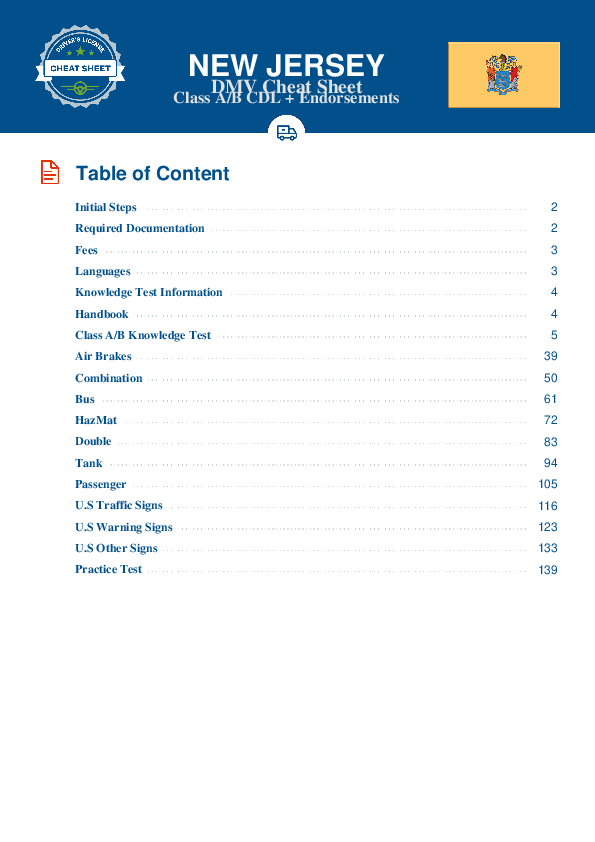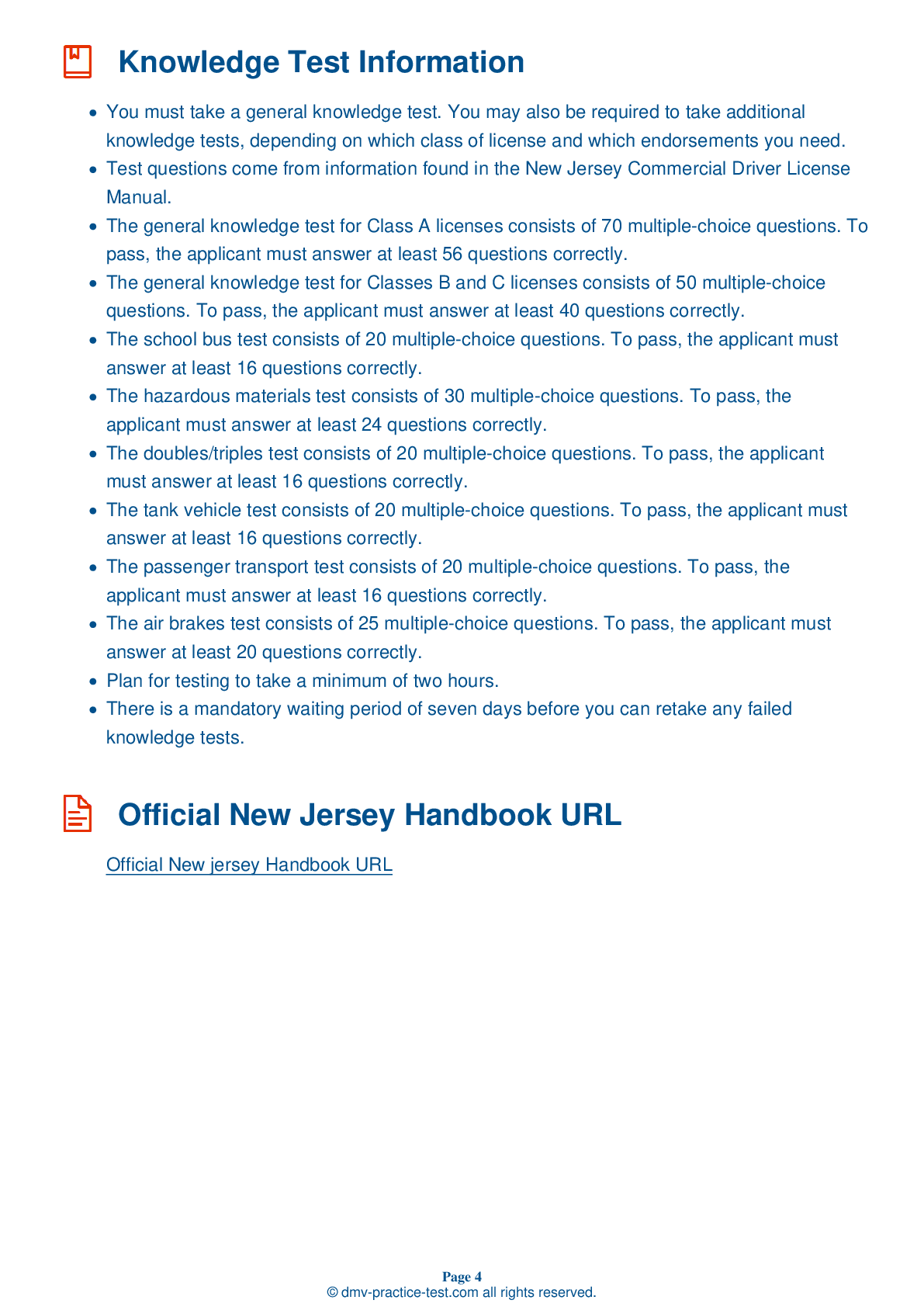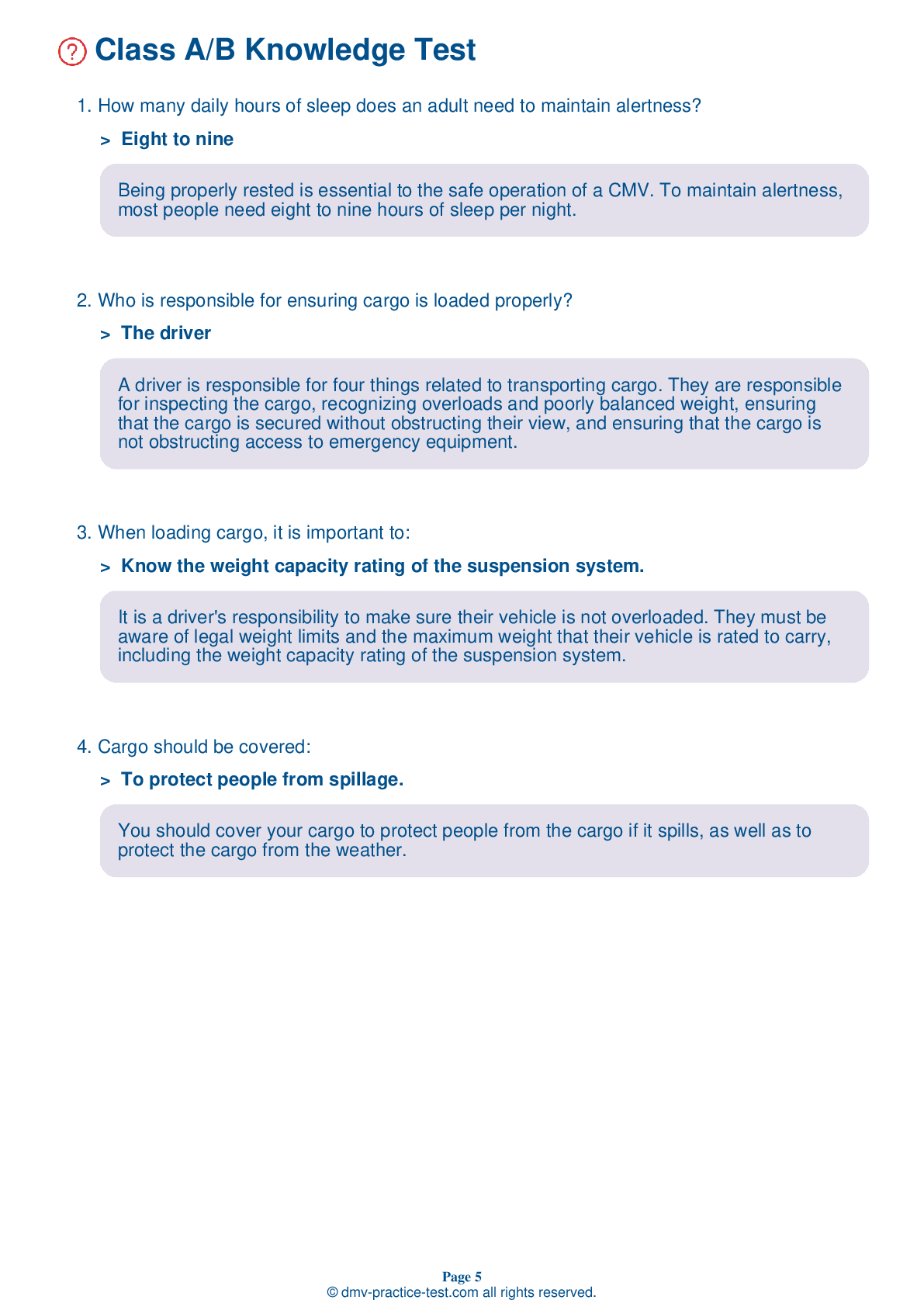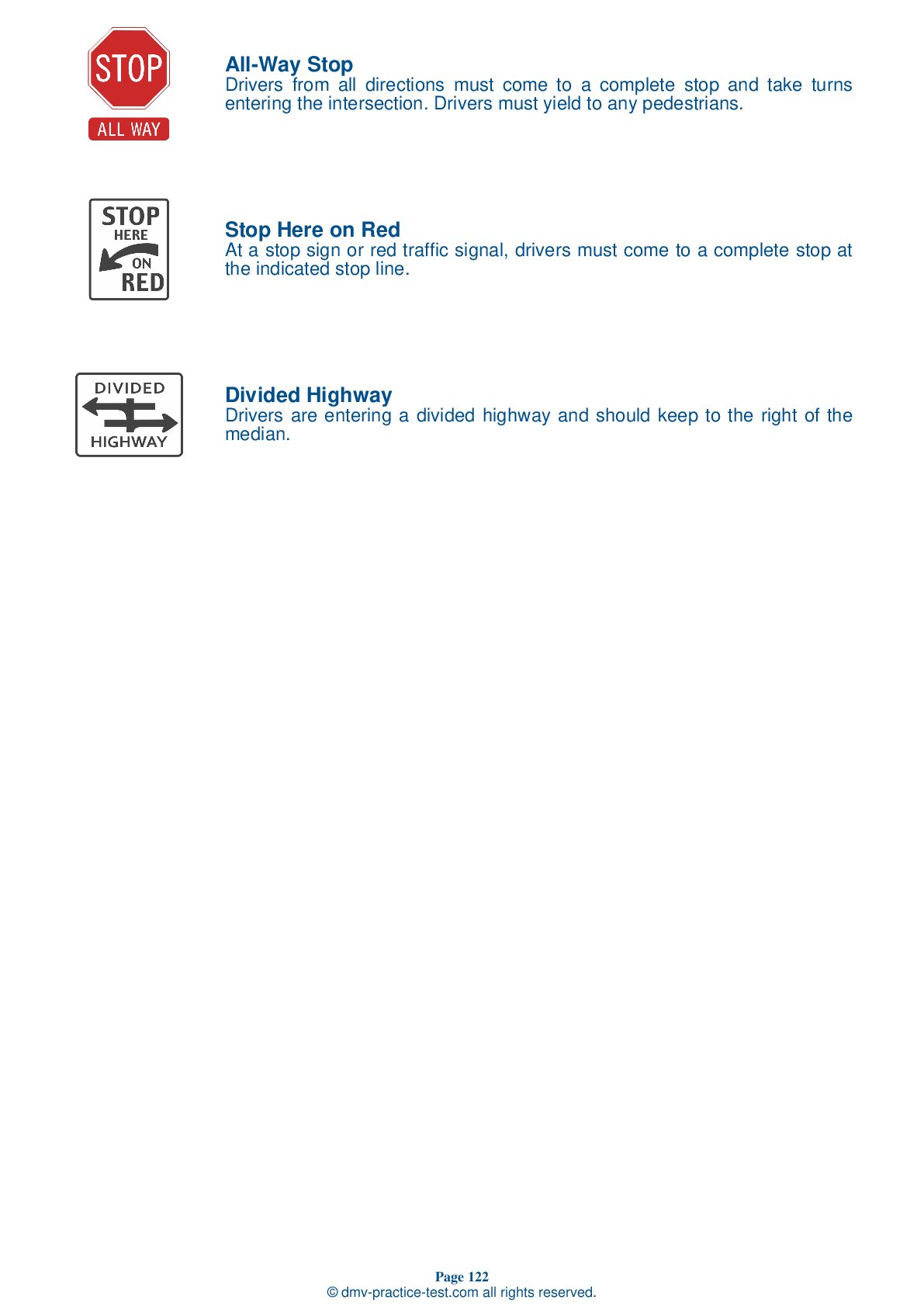Air Brakes Endorsement Test | New Jersey 2026 #1 Page 4 of 4
Train for FREE online with our New Jersey CDL air brake test. The official exam test consists of several obligatory parts, with all of them checking your knowledge of different blocks of road rules. If you need to obtain a NJ Class A/Class B driver license in 2026, practice as much as possible. Free sample tests published on our website will help you check and improve your knowledge and boost your grades. Please bear in mind that the requirements for CDL may vary from state to state.
19 . Foundation brakes are used:
Foundation brakes are used at each wheel. The most common type is the S-cam drum brake.
20 . When the brake pedal is pushed down, air brakes work:
Because air takes time to flow through the air lines to the brakes, air brakes cannot begin working instantly. There is often a brake lag of at least one-half of a second between the moment the brake pedal is pressed and the moment the brakes begin to work.
21 . To inspect slack adjusters on S-cam brakes, you need to:
Check each slack adjuster after parking on level ground, setting wheel chocks, and disengaging the parking brake. Pull the slack adjusters to make sure they do not move more than about one inch from where the push rod is attached. If they move more than one inch, they may be out of adjustment and will need to be fixed.
22 . The air compressor governor controls:
In an air brake system, the air compressor governor controls when the air compressor pumps air into the air storage tanks.
23 . Why do large vehicles use air brakes?
Air brakes are an effective and safe way of stopping large and heavy vehicles, as long as they are maintained and used properly.
24 . What can happen if parking brakes are used in very wet weather with temperatures below freezing?
Parking brakes should not be used in very wet weather when temperatures are below freezing. The brakes could become frozen in place, making it impossible to move the vehicle.
25 . A tank endorsement is:
With some exceptions, you must have a tank endorsement to transport liquids or gases. This applies to both hazardous and non-hazardous substances.
See the exact questions that will be on the 2026 New Jersey DMV exam.
99.2% of people who use the cheat sheet pass the FIRST TIME
Lillian MCcranie explains how our CDL study guide was helpful in passing the exam and recommends it to everyone.
Cameron tells us how he purchased the CDL exam, and found it to be a useful tool which helped him pass the exam and find a job.



